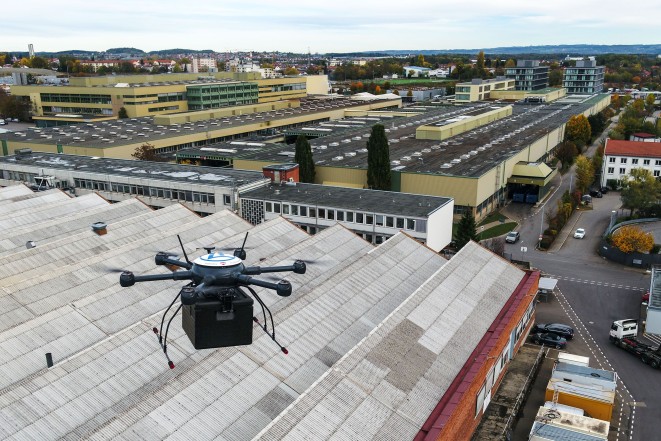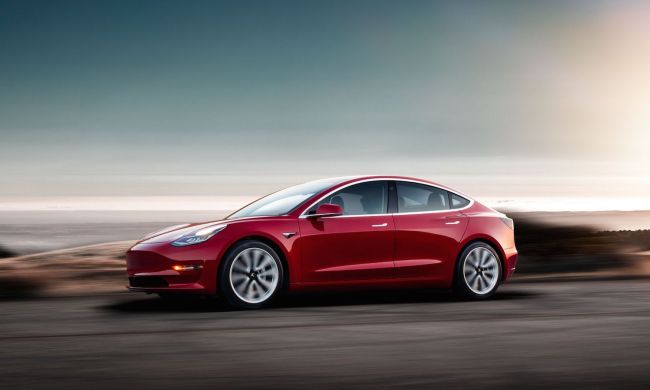
Look, up in the sky! It’s a bird, it’s a plane, it’s … a drone carrying car parts to a factory. ZF, a German car parts maker headquartered in Friedrichshafen, is the first company in the country to be granted approval by the government to use automated drones to fly spare parts to its factory premises.
The company started experimenting with drones recently and is now using the unmanned flying vehicles to carry sensors and control cards from its central warehouse to its workshops. The company is carrying out tests flights with the intention of deploying the drones to cut down on vehicle traffic between the locations. ZF believes it can save time by having the drones handle the one-kilometer-long trip. It’s not the first company to make a drone delivery in Germany, but it’s the first to gain permission for this type of transit.
The drones being used by ZF have six motors and can transport about 11 pounds in weight at a time — which works out to about 6.5 pounds of goods once you account for the grippers and transport boxes that are attached to the flyers. Per the company, that’s about all that is needed to move small parts and tools that need to make their way to the factories. The drones are powered by rechargeable batteries that provide 30 to 40 minutes of uninterrupted flight time. The drones are designed to avoid driveways, sidewalks, and anywhere else a human might be walking, and they also have built-in redundancies that can protect against sudden failure.
“With the drone, we are taking the transport chain to the next level,” Fredrik Staedtler, head of ZF’s Commercial Vehicle Technology division, said in a statement. “With approvals for automated drone flights from the Stuttgart Regional Administrative Authority and the German Air Traffic Control DFS, we can accelerate logistics processes in the plant and at the same time strengthen our technological leadership position.”
ZF sees the potential to expand the drone delivery program to other companies, which could also use UAVs to make drop-offs at the ZF plant. In the long term, the car parts manufacturer is hoping it will be able to expand to other areas and make deliveries outside of the current areas the pilot program is restricted to.


